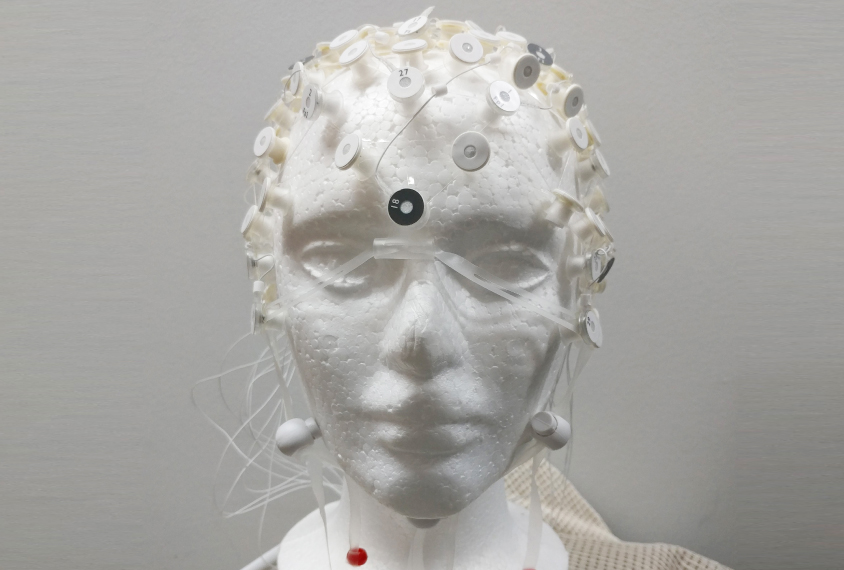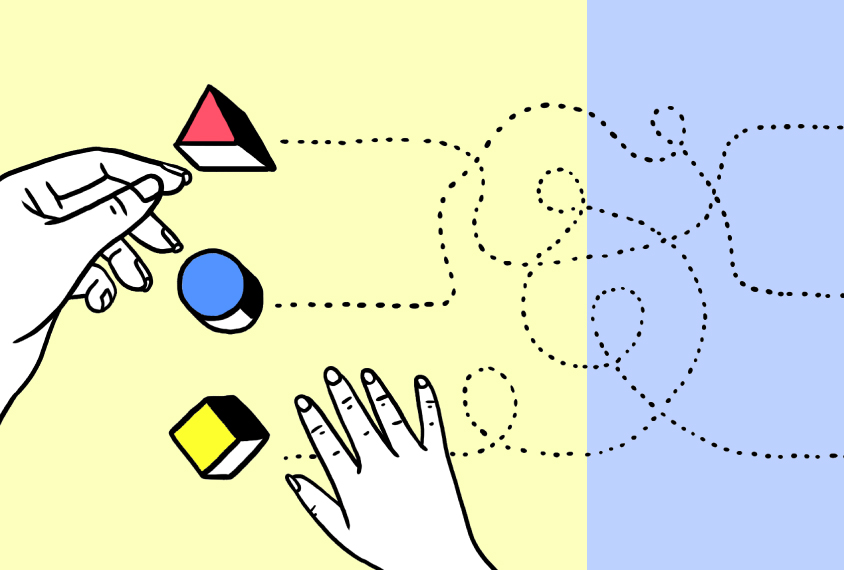Jen Monnier is an intern at Spectrum. She is a journalist in New York City, covering medicine, technology and ecosystems. She’s also a graduate student at New York University’s Science, Health and Environmental Reporting program.

Jen Monnier
From this contributor
Early interventions, explained
The accepted wisdom in autism research holds that early intervention offers the best promise for an autistic child’s well-being. But how effective are these therapies?
Multipart device monitors various senses in babies
A new assemblage of tools precisely gauges a baby’s biological response to sights, sounds and tactile stimuli all at once.

Multipart device monitors various senses in babies
New consortium may create projects, funding for autism research
A newly formed group of leaders from the U.S. National Institutes of Health (NIH) is poised to generate funding opportunities for child health research, including autism science.

New consortium may create projects, funding for autism research
Glowing capsule illuminates problems in gut
An ingestible electronic capsule enables researchers to instantaneously detect molecules associated with gastrointestinal issues.
Explore more from The Transmitter
Xiao-Jing Wang outlines the future of theoretical neuroscience
Wang discusses why he decided the time was right for a new theoretical neuroscience textbook and how bifurcation is a key missing concept in neuroscience explanations.
Xiao-Jing Wang outlines the future of theoretical neuroscience
Wang discusses why he decided the time was right for a new theoretical neuroscience textbook and how bifurcation is a key missing concept in neuroscience explanations.
Memory study sparks debate over statistical methods
Critics of a 2024 Nature paper suggest the authors failed to address the risk of false-positive findings. The authors argue more rigorous methods can result in missed leads.

Memory study sparks debate over statistical methods
Critics of a 2024 Nature paper suggest the authors failed to address the risk of false-positive findings. The authors argue more rigorous methods can result in missed leads.
Attention not necessary for visual awareness, large study suggests
People can perceive some visual information even if they do not pay direct attention to it.

Attention not necessary for visual awareness, large study suggests
People can perceive some visual information even if they do not pay direct attention to it.

